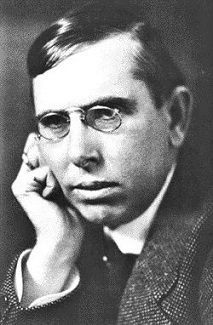re: Sandra Scott Travels: “An American Tragedy”
Oswego County Today
September 20, 2020
There are several inaccuracies in this piece.
Scott states that An American Tragedy, “along with books like ‘Grapes of Wrath’, is seen as the beginning of the modern American literature.” This statement seems problematic. Could not ‘modern American literature” be said to have begun with Huckleberry Finn? Or to have been already begun around the time that Dreiser was writing Sister Carrie and Stephen Crane works such as Maggie: A Girl of the Streets?
Scott states that An American Tragedy “shows the extent someone will go to realize the American Dream ignoring any sense of morality.” This is succinctly and well put.
In discussing the factual underpinnings of An American Tragedy — i.e., the Gillette murder case — Scott makes a serious, common error:
Chester Gillette was born into a successful family but his father, after a religious conversion, renounced his wealth [italics added] and became a roving missionary for the Salvation Army. Gillette, however, still hankered for the good life and when his uncle offered him a job at his factory in Cortland he accepted. He had the opportunity to work hard and advanced. Knowing that he should not consort with the help, Gillette ignored the advice and began seeing Grace Brown, a hard working girl from a farm family. They usually met at her place and not in public. Meanwhile, Gillette moved up the social rung and began dating the daughter of a prominent family. [italics added] Grace Brown became pregnant and wanted to get married but that would have interfered in Gillette’s hope for marrying someone from the upper class.
The notion that Chester Gillette was dating a local girl (Harriet Benedict, not named by Scott) is a common misconception. It has been thoroughly disproved and you would think someone writing an article about An American Tragedy and the Gillette case would know this (or, at least, bother to check). There are numerous publications about the actual case, and Craig Brandon has written a book which provides the definitive account.
The notion that there was “another woman” whom Gillette was involved with and that such a relationship gave him a motive for murdering Grace Brown is not only suggested by the character Sondra Finchley in An American Tragedy — which is FICTION, don’t forget — it was also rumored that this was the case at the time of Chester Gillette’s arrest and trial in 1906.
Perhaps Dreiser himself, who used the New York World as his source for the Gillette case, was influenced by such accounts. Early on, in July 1906, at the time of the murder of Grace Brown and Gillette’s arrest, the World published a story suggesting that Gillette may have been engaged to another girl. The girl was Harriet Benedict, a member of the of the “best’ families in town. Miss Benedict, who testified at Gillette’s trial, said that she knew Gillette and had been on a social outing in which Gillette was a member of the party, but she stated, unequivocally, that there had never been any romantic relationship, much less an engagement. Scott’s assertion that “Gillette moved up the social rung and began dating the daughter of a prominent family,” presumably establishing a motive for his murdering Grace Brown, is flat out wrong.
Moreover, Scott states that Chester Gillette’s father, Frank Gillette, upon experiencing a religious conversion, renounced his wealth. This is also pure fantasy. Frank Gillette was not born into a wealthy family (quite the opposite) and he never became rich. Chester Gillette grew up poor. Chester did have a rich uncle, Noah H. Gillette, owner of the skirt factory where Chester was employed.
— Roger W, Smith
September 2020
.
*****************************************************
Addendum:
While I am at it, I would like to point out that many misconceptions about both An American Tragedy and the Gillette case itself have come from the film A Place in the Sun and comments by film critics. There was an earlier film based on the novel: An American Tragedy (1931), directed by Josef von Sternberg.
The 1931 film has been broadcast on Turner Classic Movies. Host Ben Mankiewicz stated that Chester Gillette’s mother sued Paramount, the film company. It was Grace Brown’s mother, Minerva Brown, who sued, not Chester Gillette’s mother.
I emailed Mankiewicz about this and got no response.

interesting, Roger, as always!
LikeLike
Thanks, Michael.
LikeLike